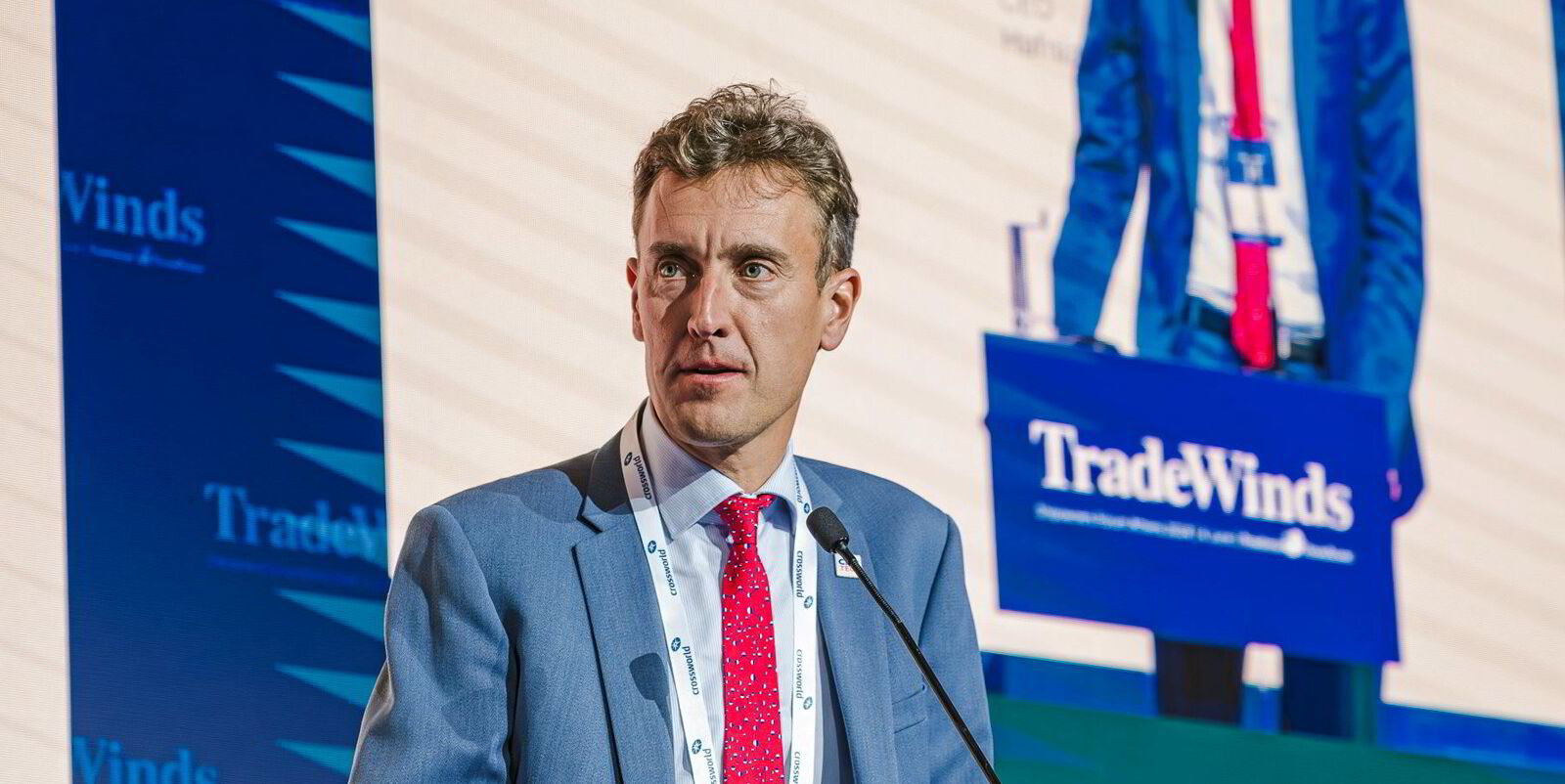CMB.Tech was cut to hold by Fearnley Securities on Friday with the company’s valuation and possible tanker asset sales in focus.
“We downgrade to hold as the equity deservedly is priced in the higher range of our peer group,” analyst Fredrik Dybwad said in a note.
The target price was lowered to $18 per share from $22.
“Having completed the combination with Euronav, CMB.Tech has become a diversified future-proof shipping company,” said Dybwad.
The stock ticker changed from EURN to CMBT on Euronext and the New York Stock Exchange on 15 July. The Euronav name will continue to be used for the tanker division of CMB.Tech.
With 52 newbuildings through 2027, there is a significant capex programme, according to Fearnleys.
“Fully delivered, 68 of the vessels in the fleet will be zero emission dual-fuel/ready, hence CMBT is well positioned to weather coming regulations,” Dybwad said.
CMBT has sold several crude vessels after the combination with Euronav.
Fearnleys said that “further divestments of crude tonnage could be on the cards”.
The divestments could partly be used to fund the capex programme of $3.1bn but also other newbuilding opportunities or deleveraging.
“For now, most earnings are spot driven — crude tankers and dry bulk — and our valuation remains NAV [net asset value] based,” Dybwad added.
“Moreover, as CMBT prefers long-term time charters on newbuildings — expect new projects to be backed by time charters — the equity could trend towards higher pricing on the back of firm multi-year backlogs on their modern fleet, we believe.”
Fearnleys sees no dividends as it estimates CMBT will be below the 30% equity ratio in the $200m bond covenant at the end of the third quarter of this year.
But considering the strong earnings and backing by asset values, the broker expects this to be addressed in a “prudent way later this year”.
The broker estimates a net asset value of $16.4 per share and pegs its target price at $18, which is equivalent to the one-year forward NAV.
The broker considers the NAV to be fair given the equity’s strong year-to-date performance and its track record. They note that diversified shipping companies historically command lower NAV multiples compared to pure-play operators and that increasing leverage, capped distributions and low liquidity also impact the valuation.






